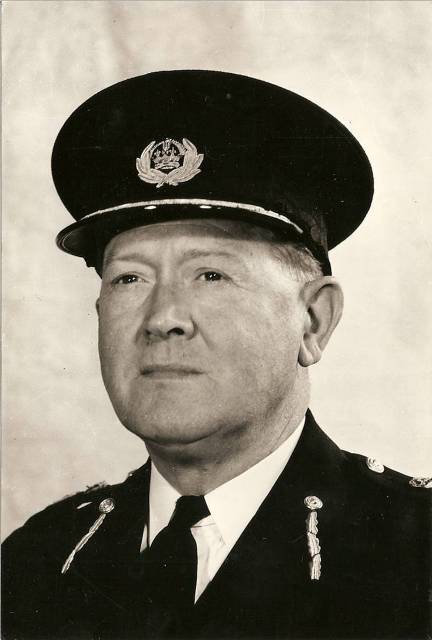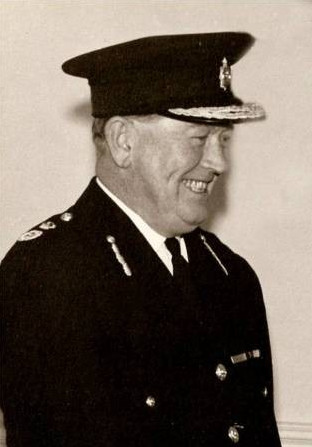CHARLES CARNEGIE MARTIN
Charles Carnegie Martin joined the Metropolitan Police as a Constable in 1921 and performed street duty in various parts of the Metropolis. He was promoted to Sub-Divisional Inspector in 1938 and subsequently became Senior Lecturer in Law and Police duties at the Metropolitan Police Training School, Hendon.
In 1941 he became Chief Constable of the Royal Leamington Spa Borough Police. He was not destined to remain there for very long. In September 1942 he successfully made application for appointment as the Chief Constable of the Southport County Borough Police and remained in the seaside town until July 1946 when he was appointed 1st Assistant Chief Constable of Liverpool under Chief Constable Herbert Winstanley.
He was appointed Chief Constable of Liverpool in April 1948 following the retirement of Mr. Winstanley. In the New Year Honours of 1951 he was awarded the C.B.E. In 1955 he was one of two representatives from the UK who were official delegates to the first United Nations Congress on the Prevention of Crime and Treatment of Offenders which was held at Geneva. At other times during his police career he made official visits to Hamburg, Gibraltar, Algiers, Alexandria, Cairo and Cyprus.
Whilst at Liverpool he oversaw the introduction of the then innovative Juvenile Liaison Scheme (1953) which later became an accepted method of dealing with juvenile offenders throughout the UK. He was also instrumental in putting forward a scheme for the appointment of Police Cadets to the force. This was approved by the Watch Committee and the Home Office, again something which was emulated by other forces at home and abroad. The New Year Honours of 1957 saw him being appointed Knight Bachelor. At 6′ 4 1/2″ tall, Sir Charles was a formidable and impressive sight in uniform. Indeed, it was said that he was the tallest of the UK Chief Constables.
Sir Charles Martin retired from his post as Chief Constable on the 31st October 1958 and was immediately appointed HM Inspector of Constabulary for the North West of England. He established his office at the Royal Liver Buildings. He remained an HMI until early 1967 and in the Liverpool Municipal Elections held in May of that year he contested the Church Ward Wavertree Constituency as a Conservative. He was elected with a substantial majority. In the New Year Honours of 1967 was awarded the Queen’s Police Medal. In December 1968 he resigned his Council seat and moved his home to Gloucestershire. Regrettably he did not live long to enjoy his well earned retirement and died suddenly at his home on the 22nd February 1969



